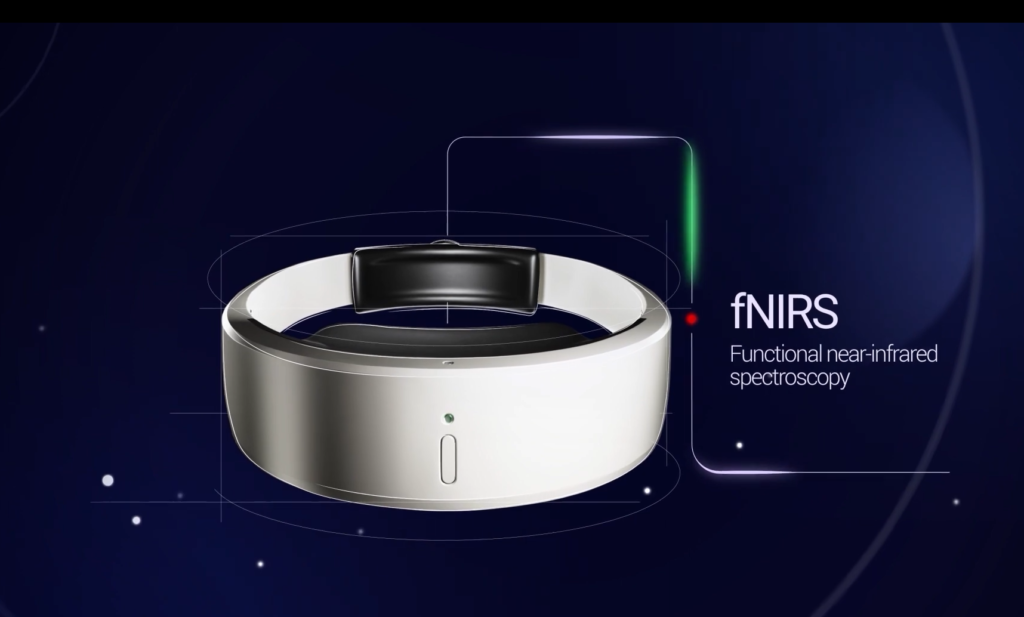MCI or Mild Cognitive Impairment, is a condition in which patients experiment a cognitive decline that is greater than what is expected for their age and education level. Having MCI does not necessary lead to dementia. However, individuals that present MCI, are more likely to develop a dementia than those who do not present this condition.
Dementias are a growing issue worldwide: According to Alzheimer’s Disease International, every 3 seconds, someone in the world develops some kind of dementia. This represents 10 million new cases every year. In 2020, there were more than 55 million people worldwide living with this condition.
An early diagnosis of these types of conditions is fundamental, not only because it is the first step to get an accurate treatment that could work, but also because it allows patients to prepare for the worst with their families.
In this blog post, we explore how beneficial is to detect this condition early, and how fNIRs technology is playing a big part in it.
Benefits of early detection of MCI:
Being able to detect early this condition, can bring numerous benefits both for patients and their families:
- Improved outcomes: Early detection of MCI can enable patients to participate in clinical trials or specific treatments. This could help slow down the progression of cognitive decline, leading to improved outcomes for individuals with this condition.
- Better quality of life: it can also improve an individual’s quality of life by helping them maintain their independence and ability to perform daily activities.
- More time for planning: Early detection can provide individuals with more time to plan for their future. This includes making decisions about their care and finances, and selecting their potential caregivers.
- Reduced burden on caregivers: Early detection and treatment can also reduce the burden on caregivers. This is because individuals with MCI may be able to maintain their independence for a longer period of time.
Dementia primarily impacts older individuals, but there is a growing recognition of cases with patients younger than 65. This means, early detection of MCI and mass screening of patients is crucial in order to help prevent dementias and the impact they can have on people’s lives.
How fNIRs technology can play a role

fNIRs technology is a non-invasive method of measuring brain activity that uses near-infrared light to detect changes in blood oxygenation. This technology can be used to detect early changes in brain function that may indicate the presence of MCI. Specifically, fNIRs technology can be used to measure changes in blood flow in the prefrontal cortex, which is an area of the brain that is commonly affected in MCI cases.
fNIRs’s device advantages:
Even though there are potential alternatives, fNIRs technology, and in particular Newmanbrain’s device THEIATM , offers a series of benefits over these more traditional methods:
- Non-invasiveness: fNIRs technology is a non-invasive method of measuring brain activity. It does not require any injections or exposure to radiation. This is beneficial because it has been proven that studying patients in a relaxed and more natural environment enables them to perform better in cognitive exams.
- Portability: fNIRs devices are portable and can be used in a variety of settings, including a doctor’s or psychologist office. This is particularly interesting because functional MRIs, which are big and require a special setting to be utilized, are one of the most common alternatives to this type of exams.
- Affordability: fNIRs devices are also more affordable than other methods of brain imaging. This makes the techonolgy more accessible to individuals who may not have access to other types of testing. It is also more accessible for counties with lower income. This is fundamental, because it is estimated that by 2050 71% of people with dementia will live in developing countries.
- Objectiveness: Other methods utilized to diagnose this condition, include individual assessment performed by professionals. This means, it depends highly on the perception and interpretation of the physician. This technology is an unbiased method that provides physicians with real time data to help with the diagnosis process.
Why is this relevant?
Mild cognitive impairment is a condition that can have a significant impact on an individual’s quality of life. However, early detection can greatly improve outcomes for individuals with this condition. This technology is a non-invasive, portable, and affordable method of measuring brain activity. And, it can be used to detect early changes in brain function associated with MCI. By using fNIRs technology, individuals with MCI can receive early intervention and treatment, leading to improved outcomes.
Newmanbrain has developed THEIATM a fNIRs portable device with the goal of making cognitive assessment accessible to everyone that might need it. With Newmanbrain mass screening for MCI and other cognitive conditions is possible.
